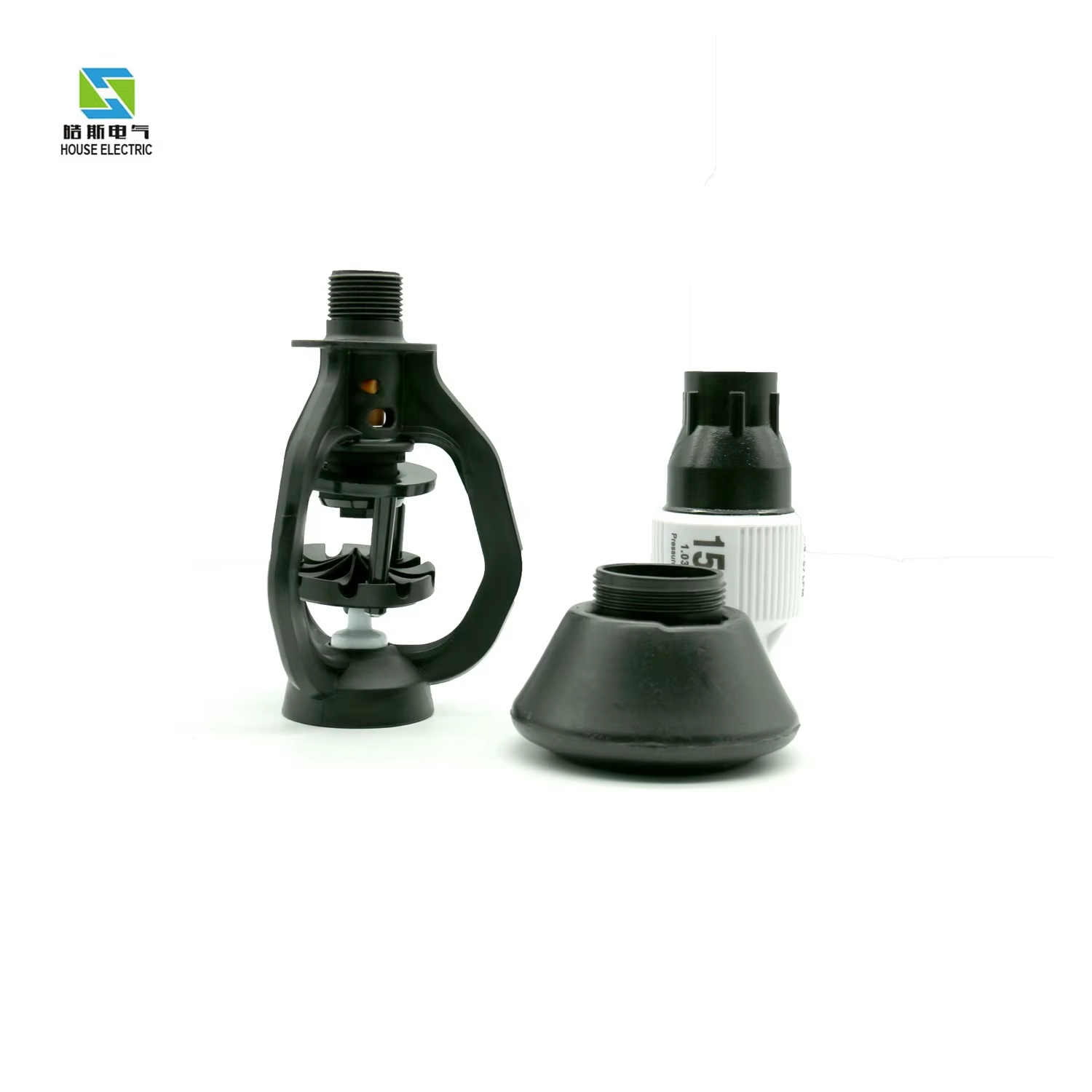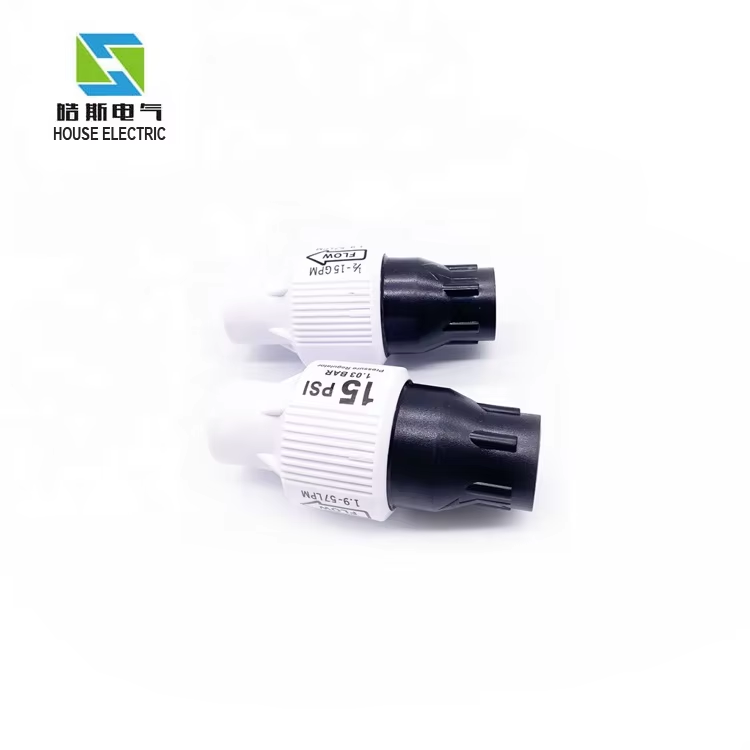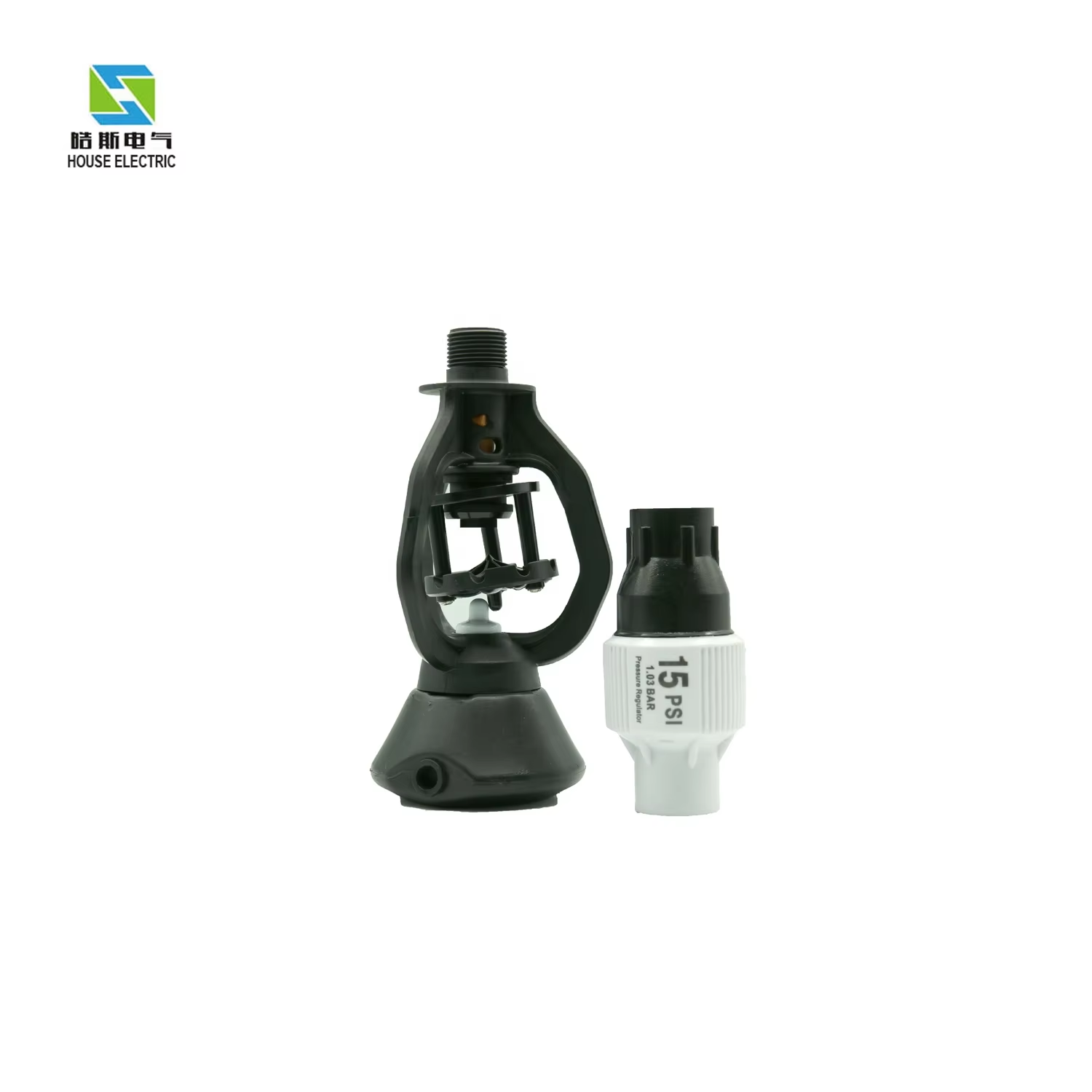Daqiao Industrial Zone,Beibaixiang Town,Yueqing city,Zhejiang Province. 86-15356512777 [email protected]
A sprinkler is an essential and versatile device integral to modern water management systems, widely utilized across diverse sectors including agriculture, horticulture, landscaping, and industrial applications. At its core, the primary function of a sprinkler is to distribute water in a controlled and uniform manner, emulating the natural process of rainfall to ensure optimal hydration of plants, maintenance of landscapes, and fulfillment of various other water - related needs. Structurally, a typical sprinkler comprises several key components. The water inlet serves as the connection point to a water source, which can range from a simple garden hose in residential settings to complex irrigation pipelines in large - scale agricultural or commercial operations. Once water enters through the inlet, it flows through the body of the sprinkler. The body houses internal mechanisms that play a crucial role in regulating the flow rate, direction, and spray pattern of the water. These internal components are often engineered with precision to ensure efficient water distribution. Finally, the spray head, the most visible and functional part of the sprinkler, is responsible for dispersing the water into the surrounding area. Sprinklers come in a wide array of types, each designed to meet specific requirements. Impact sprinklers are renowned for their high - pressure, wide - area coverage capabilities. They operate by using a hammer - like mechanism to strike a deflector, causing water to be forcefully thrown in a circular pattern over large areas. This makes them particularly suitable for expansive fields, golf courses, and large commercial landscapes where broad and uniform water distribution is necessary. Rotary sprinklers, on the other hand, rotate as water passes through them. This rotational motion allows for a more precise and even distribution of water, making them ideal for smaller gardens, lawns, and areas with delicate plants that require careful watering. Drip sprinklers, although different in operation from traditional spraying sprinklers, deliver water directly to the plant roots in a slow and controlled manner. This method minimizes water loss through evaporation and runoff, making drip sprinklers highly efficient for water conservation, especially in arid regions or for plants with specific water requirements. In the context of industrial applications, sprinklers also serve critical functions beyond irrigation. Fire - suppression sprinklers are a vital safety feature in many industrial facilities. These sprinklers are designed to automatically activate in the event of a fire, releasing a large volume of water to suppress the flames and protect property and personnel. Additionally, sprinklers are used for dust suppression in construction sites, mines, and other industrial environments. By spraying a fine mist of water, they reduce airborne dust, improving air quality and safeguarding the health of workers. Modern sprinklers are increasingly incorporating advanced technologies to enhance their performance and functionality. Many are equipped with adjustable flow rates, enabling users to customize the amount of water being applied based on factors such as plant type, soil moisture, and weather conditions. Some sprinklers are integrated with sensors that can detect soil moisture levels, temperature, humidity, and even weather forecasts. This data - driven approach allows the sprinklers to operate automatically, adjusting the watering schedule and volume to optimize water use and reduce waste. Furthermore, with the advent of the Internet of Things (IoT), smart sprinklers can now be controlled remotely via mobile apps or computer interfaces. Users can monitor and manage their sprinkler systems from anywhere, at any time, providing unparalleled convenience and control. For a company like Yueqing Haosi Electric Co., Ltd., which specializes in manufacturing irrigation system spare parts, the production of high - quality sprinklers is a key aspect of its business. The company's expertise in electrical and mechanical components ensures that its sprinklers are not only durable but also incorporate advanced features for efficient operation. Whether it's the internal mechanisms that control water flow or the materials used in the construction of the spray heads, every aspect of the sprinkler is designed with precision and reliability in mind. Maintenance of sprinklers is crucial to ensure their long - term performance. Regular cleaning of the nozzles is essential to remove dirt, debris, and mineral deposits that can clog them and affect water distribution. Checking for leaks in the connections, ensuring the proper functioning of the internal mechanisms, and lubricating moving parts in rotating or impact sprinklers are also important maintenance tasks. By following a regular maintenance routine, users can extend the lifespan of their sprinklers and ensure consistent and efficient water distribution. In conclusion, sprinklers are indispensable devices that play a multifaceted role in water management. Their diverse types, advanced features, and wide range of applications make them essential for various industries. With continuous technological advancements and a focus on quality manufacturing, sprinklers will continue to evolve, providing even more efficient and sustainable solutions for water distribution.




Copyright © 2025 by Yueqing House Electric Co.,Ltd - Privacy policy